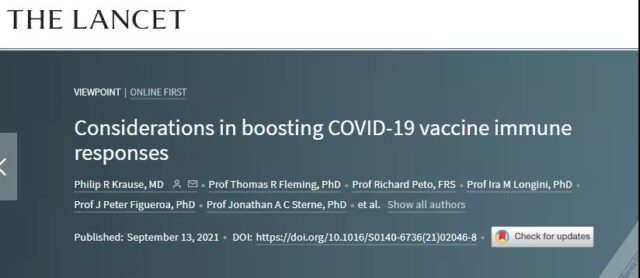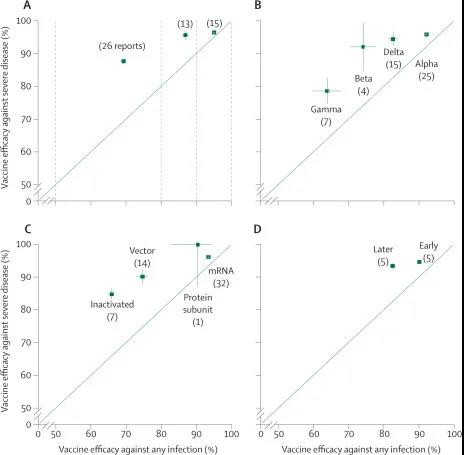Lancet: The efficacy of COVID-19 vaccine may not support booster shot
- Statins Lower Blood Lipids: How Long is a Course?
- Warning: Smartwatch Blood Sugar Measurement Deemed Dangerous
- Mifepristone: A Safe and Effective Abortion Option Amidst Controversy
- Asbestos Detected in Buildings Damaged in Ukraine: Analyzed by Japanese Company
- New Ocrevus Subcutaneous Injection Therapy Shows Promising Results in Multiple Sclerosis Treatmen
- Dutch Man Infected with COVID-19 for 613 Days Dies: Accumulating Over 50 Virus Mutations
The Lancet: The efficacy of COVID-19 vaccine may not support booster shot for ordinary people
- Red Yeast Rice Scare Grips Japan: Over 114 Hospitalized and 5 Deaths
- Long COVID Brain Fog: Blood-Brain Barrier Damage and Persistent Inflammation
- FDA has mandated a top-level black box warning for all marketed CAR-T therapies
- Can people with high blood pressure eat peanuts?
- What is the difference between dopamine and dobutamine?
- How long can the patient live after heart stent surgery?
The Lancet: The efficacy of COVID-19 vaccine may not support booster shot for ordinary people.
On September 13, an international team of scientists published the conclusion in The Lancet that even with delta variants, the protective effect of the COVID-19 vaccine is very high. Therefore, at this stage of the pandemic, the general population is provided with booster injections. It’s not appropriate.

Philip R Krause et al. Considerations in boosting COVID-19 vaccine immune responses, The Lancet (2021). doi.org/10.1016/S0140-6736(21)02046-8
It can be seen from observational studies that the vaccine is very effective in preventing COVID-19, and vaccination is 95% effective in delta variants and Alpha variants.
Among the population with high vaccination coverage, the few who have not been vaccinated are still the main cause of transmission, and they themselves are also at the highest risk of serious diseases.
It is worth mentioning that vaccines are not as effective in preventing asymptomatic as they are in preventing serious diseases.

The efficacy of vaccines against serious diseases vs. the efficacy of vaccines against any infection
“On the whole, the current research does not provide evidence that the protection of vaccines against serious diseases has dropped significantly.
Therefore, if the supply of vaccines is provided to people who are at obvious risk of serious diseases but have not received any vaccines, it will save more More lives.
If the vaccine is deployed in an effective place, it can accelerate the end of the spread of the pandemic by inhibiting the evolution of variants.” said Dr. Ana-Maria Henao-Restrepo from WHO.
Even if the vaccinated person’s antibody level decreases over time, this does not necessarily indicate that the vaccine’s efficacy against serious diseases will decrease.
This may be because protection against serious diseases is not only mediated by antibody responses.
For some vaccines, the duration of antibody responses may be relatively short, but the human body has memory responses and cell-mediated immune responses.
These responses The duration is usually longer. If we finally have to promote the strengthening needle, we need to determine in which specific situations the benefits outweigh the risks.
The antibody response of the current variants caused by the vaccine indicates that these variants have not yet evolved to the extent that they may escape the vaccine-induced memory immune response.
Even if the new variants can escape the control of current vaccines, they are likely to come from strains that are already widespread.
Therefore, the effectiveness of booster needles specially developed to match new variants may be stronger than booster needles using current vaccines.
A similar strategy is used for influenza vaccines. The annual vaccines are based on the latest data on circulating strains, which increases the likelihood that the vaccine will remain effective.
“The current vaccine is safe, effective, and can save lives. Although it is attractive to further reduce the number of new coronavirus cases by improving the immunity of vaccinators, any decision to do so should be based on evidence and consider the individual.
And the interests and risks of society. These major decisions should be based on strong evidence and international scientific discussions.” WHO Chief Scientist Dr Soumya Swaminathan added.
Reference:
Philip R Krause et al. Considerations in boosting COVID-19 vaccine immune responses, The Lancet (2021). doi.org/10.1016/S0140-6736(21)02046-8
(source:internet, reference only)
Disclaimer of medicaltrend.org
Important Note: The information provided is for informational purposes only and should not be considered as medical advice.



